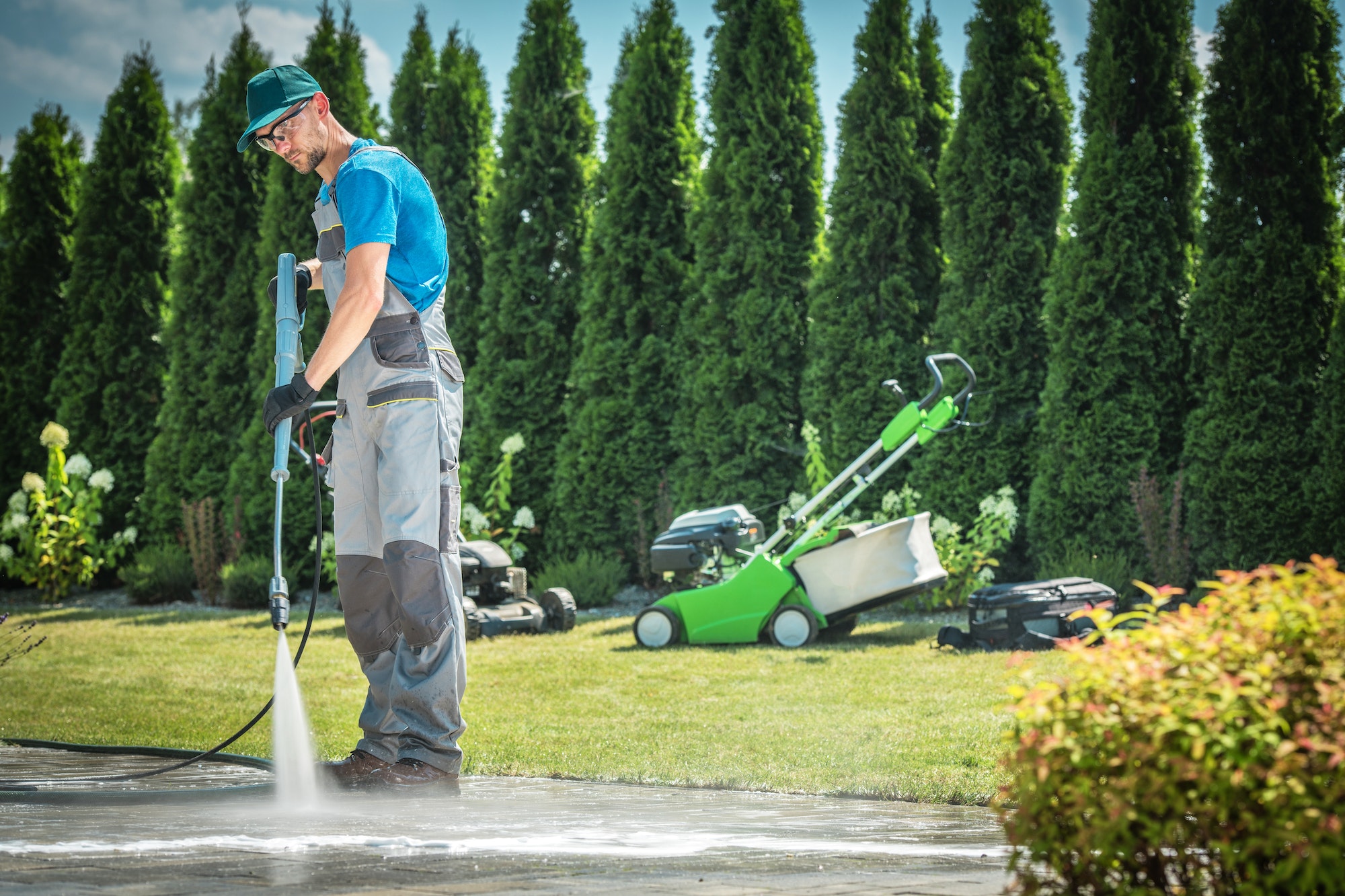Pressure washing is an effective method of cleaning various surfaces by utilizing high-pressure water jets. Beyond its practical applications, pressure washing also offers several environmental benefits. When used properly, pressure washing can contribute to a greener and cleaner world.
Water Conservation
Using hot water pressure washers helps conserve water. Traditional cleaning methods often involve using large amounts of water, leading to unnecessary waste. Pressure washing, on the other hand, relies on high-pressure jets to dislodge dirt, grime, and contaminants, minimizing the amount of water required. The forceful water stream effectively cleans surfaces with less water, resulting in substantial water savings. By reducing water consumption, pressure washing plays a vital role in conserving one of our most precious natural resources.
Additionally, pressure washing allows for precise targeting of specific areas, reducing wasteful overspray. This efficient cleaning process is particularly beneficial in areas affected by water scarcity or during drought conditions, as it significantly reduces water wastage. Many individuals and businesses have embraced pressure washing as a sustainable alternative for maintaining cleanliness while conserving water resources. Its popularity as an environmentally conscious cleaning solution continues to grow, demonstrating the importance of water conservation efforts in various industries and communities.
No Harmful Chemicals
Pressure washing helps prevent the use of harmful chemicals. Many cleaning tasks often involve the use of harsh chemicals that can have adverse effects on the environment. Pressure washing eliminates or significantly reduces the need for such chemicals. The high-pressure water alone is often enough to remove stubborn stains, mold, mildew, and other contaminants. By minimizing chemical usage, pressure washing promotes eco-friendly cleaning practices, reducing pollution and protecting our ecosystems.
The absence of harsh chemicals ensures that the process is safe for the surrounding environment, including plants, animals, and humans. With meticulous attention to detail, pressure washing experts employ suitable nozzles and adjust the water pressure to achieve optimum cleaning without causing damage to the surfaces being cleaned. By harnessing the power of water alone, this method effectively removes dirt and grime, leaving surfaces looking rejuvenated and revitalized.
Improved Air Quality
Pressure washing enhances air quality. Over time, dirt and dust can accumulate on outdoor surfaces, negatively impacting the surrounding air quality. Pressure washing effectively removes these contaminants, improving the air we breathe. By eliminating dirt from surfaces, pressure washing mitigates the risk of airborne particles being dispersed into the atmosphere. Cleaner air leads to better respiratory health for humans and contributes to a healthier environment for all living organisms.
When surfaces are neglected, they become breeding grounds for bacteria, allergens, and pollutants. Pressure washing also effectively eliminates these harmful substances, ensuring a cleaner and healthier environment. Additionally, it helps to reduce the presence of mold and mildew, which are common allergens known to trigger respiratory problems. Consequently, pressure washing contributes to improving overall air quality by minimizing the presence of airborne pollutants.
Extended Lifespan of Items Cleaned with Pressure Washing
Pressure washing helps preserve and protect surfaces. Regular cleaning and maintenance are essential for prolonging the lifespan of various structures and surfaces, such as buildings, decks, driveways, and fences. When surfaces are neglected and allowed to accumulate dirt, grime, or algae, they can deteriorate more quickly.
This deterioration often necessitates costly repairs or replacements. Pressure washing prevents the buildup of harmful substances, preventing premature degradation and extending the longevity of surfaces. By preserving structures, pressure washing helps reduce waste and conserves resources.
In summary, pressure washing offers several environmental benefits. These environmental benefits highlight the importance of pressure washing as a sustainable and efficient cleaning method. By embracing pressure washing, individuals and businesses can contribute to a greener and cleaner world for future generations.
Discover more from Futurist Architecture
Subscribe to get the latest posts sent to your email.




